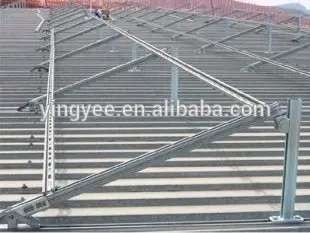The Importance of Steel Coils in Modern Industry
Steel coils play a crucial role in various industrial applications, serving as fundamental materials in the production of numerous products we encounter daily. Steel, an alloy primarily composed of iron and carbon, is known for its strength, durability, and versatility. The process of producing steel coils involves rolling molten steel into thin sheets, which are then coiled for easier handling and transportation. This article explores the significance of steel coils in modern industry, their production processes, and the diverse applications they support.
Production Process
The production of steel coils starts with the melting of iron ores in a blast furnace, where additives are incorporated to enhance the properties of the metal. Once the molten steel is obtained, it is cooled and then continuously cast into slabs. These slabs are further processed in hot rolling mills, where they are heated and rolled into thin sheets. The rolling process can be done hot or cold, depending on the desired properties of the final product. Hot-rolled coils are thicker and have a rougher surface, while cold-rolled coils are thinner, smoother, and more precise.
After the rolling process, steel coils undergo various treatments. For instance, they may be coated with zinc to produce galvanized steel, which is highly resistant to corrosion. The coils are then inspected for quality and cut to specific sizes based on customer requirements, enabling manufacturers to tailor products for specific applications.
Applications of Steel Coils
Steel coils are widely utilized across different sectors, highlighting their importance in construction, automotive, manufacturing, and packaging industries.
steel coils
1. Construction In the construction industry, steel coils are used to produce structural components such as beams, columns, and reinforcements. Their strength and flexibility make them ideal for building frameworks that can withstand heavy loads and harsh environmental conditions. Additionally, pre-painted steel coils are employed for roofing materials, giving buildings both durability and aesthetic appeal.
2. Automotive The automotive industry heavily relies on steel coils in the manufacture of vehicle parts. From body panels to engine components, steel's high tensile strength ensures vehicle safety and performance. Moreover, advancements in technology have led to the production of lighter steel materials that enhance fuel efficiency without compromising safety.
3. Manufacturing Steel coils are a staple in various manufacturing processes, including the production of appliances and machinery. Appliances such as refrigerators, washing machines, and ovens often incorporate steel components due to their structural integrity and longevity. Moreover, many industrial machines are manufactured from steel coils to ensure reliability and reduce maintenance costs.
4. Packaging In the packaging sector, steel coils are used to produce cans and containers. Steel's ability to protect contents from contamination and its resistance to corrosion make it an ideal choice for packaging food and beverages. Additionally, steel cans are fully recyclable, contributing to sustainability efforts and reducing environmental impact.
Conclusion
Steel coils are indispensable to modern industry, providing essential materials for a wide range of applications. As technology continues to evolve, so does the production and use of steel coils, with innovations aimed at enhancing performance, reducing costs, and minimizing environmental impact. The versatility and durability of steel ensure that it will remain a critical resource in supporting economic growth and technological advancement in the years to come. Whether in construction, automotive manufacturing, or packaging, the significance of steel coils is undeniable, reinforcing their role as the backbone of industrial development.







